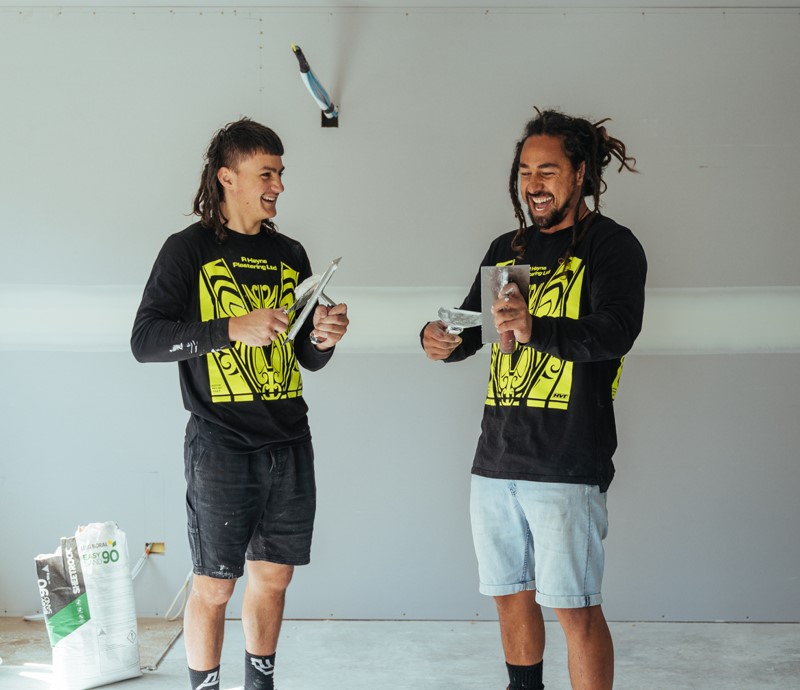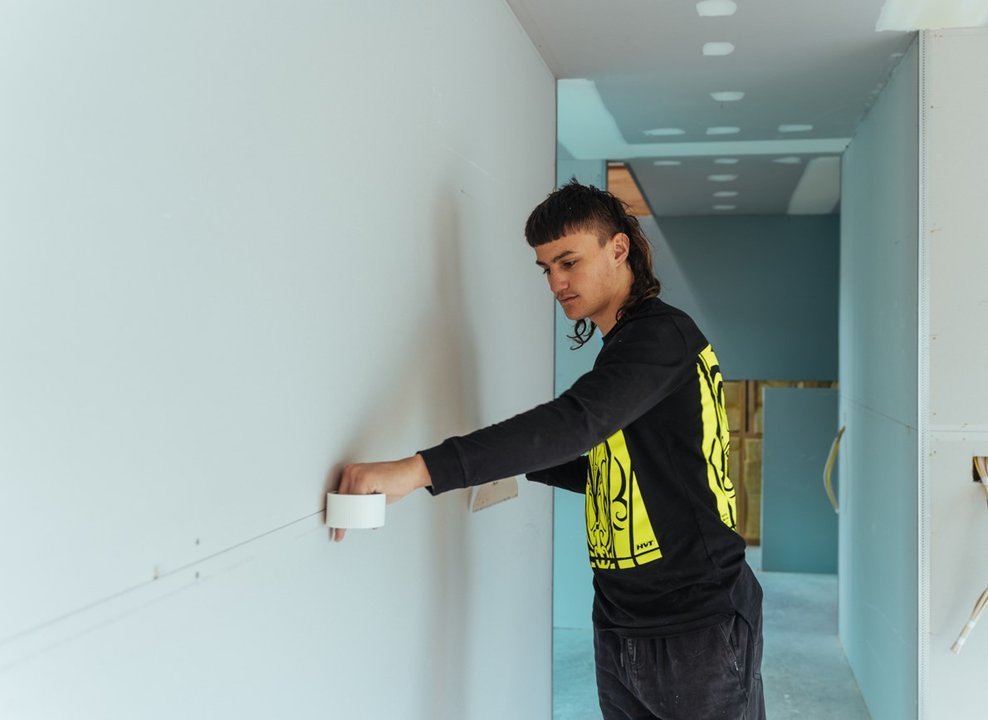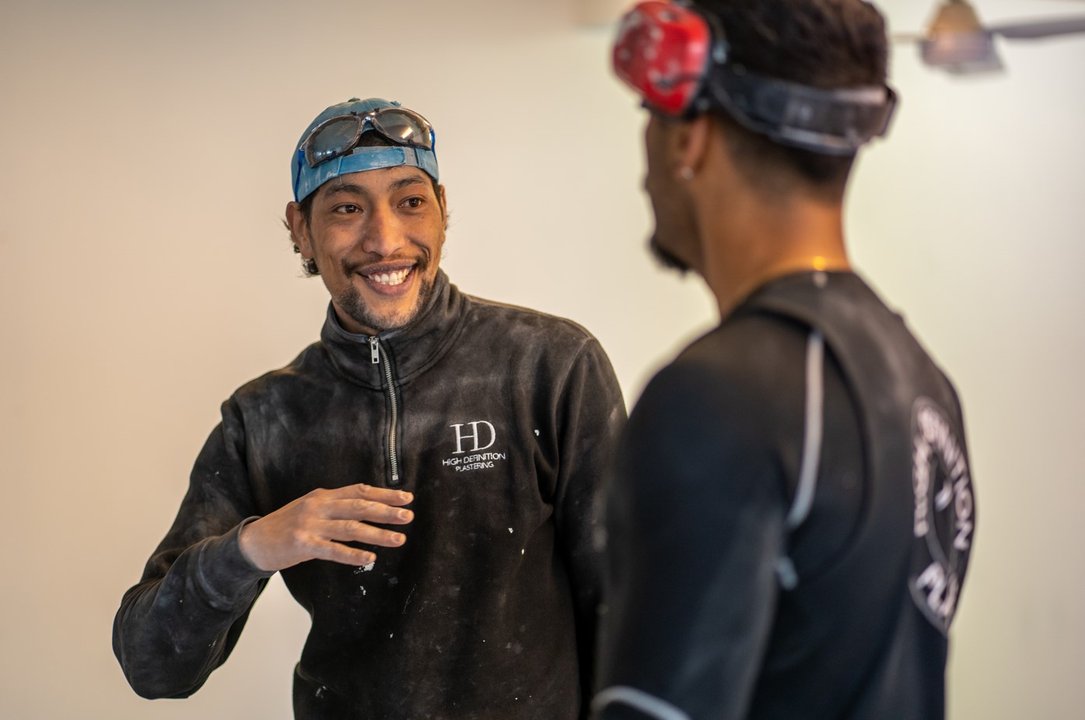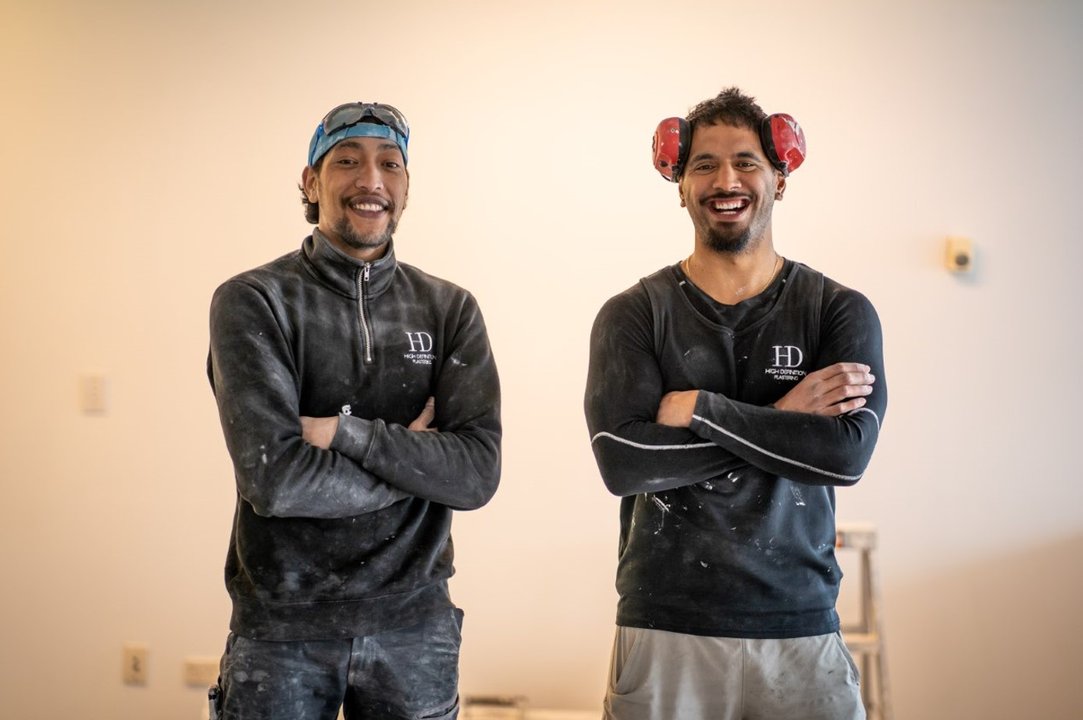
Interior Systems
Level 4
1st year $1285-$1338
2nd+ years $910
Interior systems specialists put the finishing touches on the interior surfaces of residential or commercial buildings.

What interior systems specialists do
Interior systems specialists work mostly inside, alongside other tradespeople. It's important that their work is of a high standard – it can make the difference between a good finish and a great finish.
There are great opportunities for interior systems professionals across a range of specialisations. Each has its own unique challenges and career opportunities.

Specifics
Plasterboard fixing and interior plastering
Work on new builds, alterations or repairs to existing buildings by applying plaster and fixing plasterboard to walls and ceilings.
Fibrous plastering
Work in a factory environment manufacturing products. Oversee the manufacture of fixed fibrous plaster sheets and tiles. Create and install cornices, arches, fire surrounds and dados.
Suspended ceiling and interior partition installation
Fit panels or sheets of plasterboard to a suspended grid to create a suspended ceiling. Specialise in the installation of pre-made removable partitions – usually in commercial buildings or offices.

It's not just a job, it's a professional career
Working with interior systems isn't just a job – it's a professional career. By doing an apprenticeship and getting qualified, you're setting yourself up for ongoing employment as a well-paid tradesperson. You’ll also open up opportunities to do further study in supervision or site management, go to university, or start a business and train your own apprentices.
Interior systems qualifications qualifications
BCITO manages apprenticeships for interior systems specialists. In your apprenticeship you will be working towards one of the following Level 4 qualifications:
- New Zealand Certificate in Interior Linings Installation
- New Zealand Certificate in Fibrous Plaster Manufacture
- New Zealand Certificate in Proprietary Systems Installation
You will work under an experienced employer who'll provide on-job coaching and support throughout your apprenticeship. You'll also receive the guidance of a BCITO training advisor.
There are no strict entry requirements, although it will help if you have good maths and English skills – you need to be able to understand instructions and work out measurements, quantities and angles.
Apprentice Fees
Subject
First Year
Remaining Years
Interior Linings Installation
choose 1 strand
$1,285
$910
Additional strand
- Fixing
- Finishing
$267 extra
Optional strand
- Fibrous Plaster Installation
$267 extra
Fibrous Plaster Manufacture
$1,285
$910
Optional strand
- Specialist Models and Mould Making
$267 extra
Proprietary Systems Installation
choose 1 strand
$1,338
$910
Additional strand
- Proprietary Partition
- Suspended Ceilings
$267 extra

